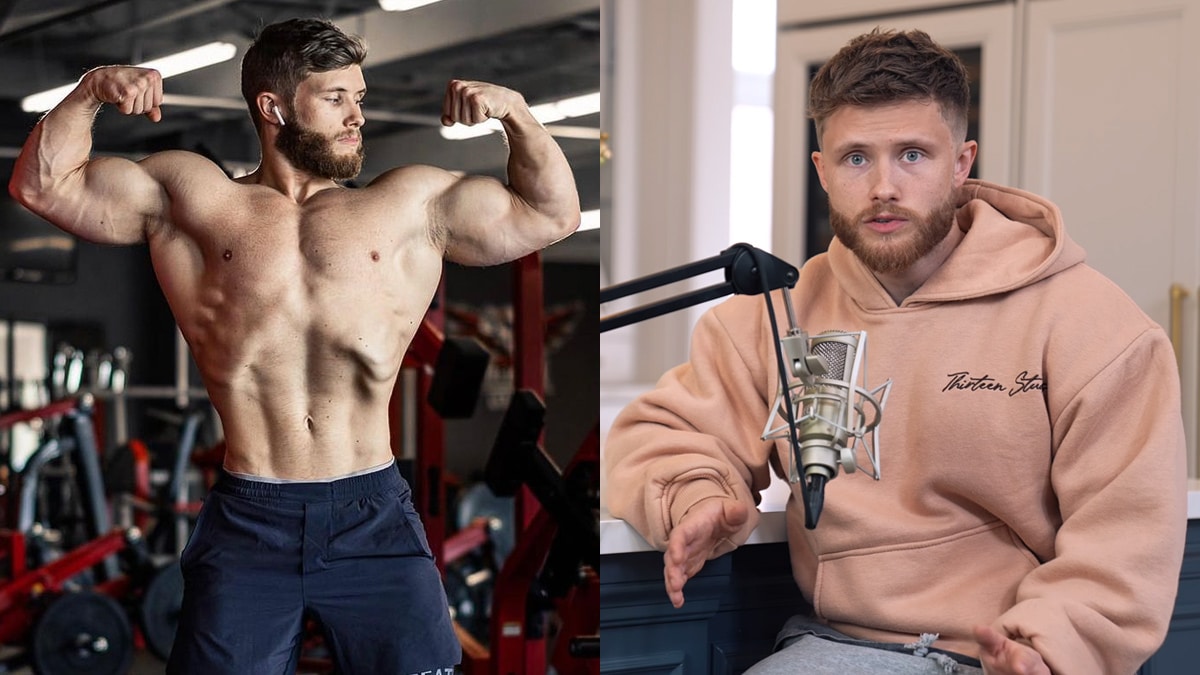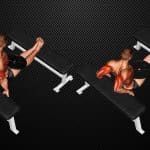Jeff Nippard is one of the foremost names in the science based fitness community. The Canadian fitness influencer recently busted a lot of myths related to the impact of nutrition on making gains. Nippard is a bodybuilder, powerlifter and fitness trainer. He is the 2012 Mr. Junior Canada title holder and also held the Canadian national record for bench press.
Known for his science based fitness content, Jeff Nippard has almost 3.7 million followers on YouTube. While he has obviously learned through the experience of training for a very long time, Nippard’s knowledge also comes from a bachelor’s degree in biochemistry. He has also trained many natural bodybuilders in the men’s and women’s divisions as well as powerlifters. In recent months, Jeff Nippard has delved into a variety of topics like minimalist training philosophy and sustainable fat loss principles. The Canadian fitness expert is also working on a push–pull–legs workout series.
In his recent video, Jeff Nippard explored the common nutritional mistakes people do, including himself. Knowing these probable errors beforehand can really help everyone make more gains without unnecessary struggles. So without further delay, let’s explore what knowledge Nippard has in store for us this time around.
Jeff Nippard sheds light on common nutrition mistakes
Nutrition is one of the most debated topics in the fitness community and there are countless methods and carefully devised systems that promise to give you desired results in a short period of time. But oftentimes, the barrage of information available in the age of the internet can cloud your judgement and result in mistakes that slow down the growth. Jeff Nippard elaborated four common nutrition mistakes and gave the necessary information for course correction.
Force feeding for muscle growth
Jeff Nippard spoke about the misunderstanding people have about the correlation between high caloric intake and muscle growth.
“A lot of people see pro bodybuilders eating 5000-plus calorie diets and assume that if they also want to get big, they need to also eat big,” he added.
While there might be a hint of truth in this assumption, Nippard opined that bodybuilding anecdotes are often unreliable. The reason? Bodybuilders that achieve pro status have great genetics and most of them, if not all, are often using anabolic steroids to aid the growth.
“So it’s hard to know if their results are coming from the fact that they’re eating big to get big or some combination of those other factors,” Nippard added.
Irrespective of rigorous and scientifically perfect training methods, most people will gain disproportionate amounts of fat rather than muscle if they eat huge amounts of food in hopes of gaining muscle mass faster.
Citing a 2013 study, Nippard noted that having a small caloric surplus can really help gaining lean muscle mass and relatively lesser amount of fat. On the other hand, a large caloric surplus will often lead to significantly higher amounts of fat gain in addition to muscles.
“Your diet permits muscle growth. It does not cause muscle growth to occur. You can’t force feed muscle growth. Training is what tells the muscles to grow. Nutrition simply supplies the building blocks,” Jeff Nippard explained.
According to Nippard a 5 to 10 percent caloric surplus is sufficient for a lean bulk while 10 to 20 percent can lead to an aggressive bulk with a little bit of fat gain.
Supplements do not have magical qualities: Jeff Nippard
Jeff Nippard totally believes in the benefits that supplements like creatine, caffeine and protein powders have. However, he feels that people often make the mistake of overestimating the muscles they gain from using these supplements.
“(Creatine) leads a lot of new lifters to think they’re going to notice a massive steroid-like boost from it. In reality, most studies show that taking creatine should result in roughly two to three pounds increase in lean mass,” Nippard stated.
Citing the results of numerous studies that were conducted from approximately weeks to a year, Nippard drove home the point that anywhere between 1.1 kg to 1.4 kg was the realistic gain from using creatine monohydrate as a supplement.
“It isn’t that creatine doesn’t work. It clearly does. 2 to 3 pounds of lean mass is still significant and it’s a solid increase. Given the relatively cheap price point of simple creatine monohydrate. It’s definitely worth taking in my opinion,” Nippard stated.
Jeff Nippard’s opinion about caffeine also follows a similar thought process. Caffein definitely gives a mental boost when consumed before workout and anecdotal evidence suggests that it can help with strength, power and muscular endurance. However, Nippard stated that caffeine consumption does not have a direct impact on muscle gain in any way.
Similarly, Nippard’s research has convinced him that protein powders are a convenient option to meet the daily protein requirement. However, they don’t have any magical effect on muscle gain.
“I personally take all three of these supplements and I’d recommend them to any serious lifter that can budget them. But as you go further and further down the list, the supplements get less and less promising,” Nippard concluded.
Giving too much importance to super high protein diet
One of the most basic assumptions for building muscle and improving performance is consumption of high protein diets. Depending upon who you ask, people may give varying opinions on how much protein is ‘must’ for building muscle, losing fat and so on. But the common thread in all these recommendations is – eat a lot of protein. And according to some, the more the better. Jeff Nippard also believed in super high protein diets. However, his stance has changed on this over the past few years.
“Research shows that the effect of protein on muscle growth is magnitudes smaller than the effect of training. Eating protein gives these short-lived blips in muscle protein synthesis while training causes this long and prolonged elevation that’s ultimately driving your growth,” Nippard revealed.
Nippard mentioned that according to latest research, optimal daily protein target for building muscle in a caloric surplus is:
- 0.7 to 1 gram protein / pound of body weight
- Or 1.6 to 2.2 gram protein / kilogram of body weight
“Even sitting towards the lower end of these ranges is still perfectly fine and I usually only suggest going to the upper end if someone is really shredded and at a particularly high risk of muscle loss. Of course it’s also important to realize that even if you eat below these ideal ranges, you can still build muscle. It just may not happen as quickly,” Nippard added.
With the help of a study conducted to assess the results of high protein diets,Nippard argued that the optimal level of protein intake is quite lower than what most bodybuilding magazines claim.
Misunderstanding Meal Frequency
Meal frequency is one of the most debated topics when it comes to the impact of diet on muscle gain / fat loss and other health benefits. While some people swear by the benefits of eating less frequently with methods like intermittent fasting, others claim that eating five to six small meals is the best thing you can do to speed up the metabolism. There are examples of people who were able to manage their weight and fitness with both methods. But wait… only one of these methods has to be effective, right? Wrong!
Nippard clarified that it solely depends on individual preference and suitability. For some people, time restricted eating will do wonders while eating smaller meals throughout the day will help others.
“It is very important that people not grind through eating six to eight meals a day just because it is supposed to speed up your metabolism. It doesn’t. And why people not struggle sticking to intermittent fasting just because it is supposed to be better at burning belly fat. It isn’t. You just need to find a meal pattern that’ll help you follow through the diet better,” Nippard explained.
The number of meals consumed per day can impact muscle growth. However, Nippard referenced a 2020 study that suggests you can have anywhere between one to six meals per day and have perfectly normal fat loss. The same study shows that eating one to six meals per day is slightly more effective in muscle gain. On the other hand, eating one to two meals per day is more effective for fat loss.
In the age of internet, it is rare to find individuals that can separate the wheat from chaff and present straight facts. Jeff Nippard has arrived to these conclusions through thorough research and his advice is worth giving a try. So set out on a path to fitness and see if these tips work for you.
You can watch the full video here, courtesy of Jeff Nippard’s personal YouTube channel:









